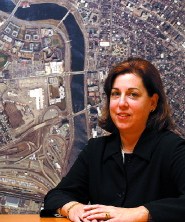 |
| Robert C. Clark |
| Stephanie Mitchell / Harvard News Office |
Thanksgiving week, Robert C. Clark, a corporate-law scholar who has been dean of Harvard Law School (HLS) since 1989, announced that he will step down at the end of the academic year. Clark cited the length of his service (he is now the senior dean) and the benefit of having a fresh leader at the outset of a new capital campaign. In the course of his tenure, the HLS permanent faculty increased by more than a quarter, to 81 tenured and tenure-track professors. A capital campaign concluded in 1995 raised $183 million and the endowment rose more than fourfold, to $840 million. The size of first-year sections was reduced significantly last year. Clark's successor will face two pressing priorities. The new fundraising campaign kicks off on June 13, and plans for Harvard's future Allston campus (in which several professional schools may figure) will be nearing decision. A more complete review of Clark's deanship will appear in the next issue.
| |||
| Aiming at Allston: To focus efforts to plan for the academic use and physical redevelopment of its landholdings in Allston, Harvard has appointed Kathy A. Spiegelman chief University planner and director of the Allston Initiative. Spiegelmans office will be located in Allston, across the Charles River from Cambridge. Spiegelman has served as associate vice president for planning and real estate, directing a unied Harvard Planning and Real Estate organization since 1995. Her appointment reflects a division of HPRE into a planning component (including local regulatory compliance), which she will run, and a separate real-estate division to manage Harvard properties, including leased apartments and construction projects. Sara Oseasohn, HPREs chief financial officer, will direct those operations during the search for a permanent successor. |
 |
| John Rawls |
| Jane Reed / Harvard News Office |
Conant University Professor emeritus John Rawls, LL.D. '97, acclaimed as the preeminent political philosopher of the twentieth century, and recalled by a colleague as "sweetly decent," died at his home in Lexington, Massachusetts, on November 24, at age 81. He joined Harvard's philosophy department in 1962, and in 1971 published A Theory of Justice, a seminal work reconciling the claims of liberty with those of equality. The book, now translated into nearly two dozen languages, is credited with revitalizing political thought and provoking broad reexaminations of social order, impelled by Rawls's conception of "justice as fairness."
Dean's List Defunct
Following the Faculty of Arts and Sciences votes last spring to restrict academic honors and adopt a new four-point grading scale (see "Study Abroad, Honors at Home," July-August 2002, page 78), dean of Harvard College Harry R. Lewis proposed in October and the faculty agreed on November 12 to deflate pumped-up honors conferred on students before graduation. Lewis noted that the nonstipendiary honors of "John Harvard Scholar" and "Harvard College Scholar" had been conferred of late on 19 percent and 48 percent of upperclassmen for having a grade-point average of A- or better, or less than A- but better than B+, for the prior year, respectively. In keeping with the new Latin honors scheme, the distinctions will now be given only to the top 5 percent and the next 5 percent of each sophomore, junior, and senior classin essence, those with averages of 3.8 or above. The Dean's Listestablished in 1914, and for which 92 percent of students beyond the freshman year now qualifywas abolished, too. In making the latter move, Harvard joins Princeton, Yale, Stanford, and MIT.
 |
| H. Robert Horvitz |
| Courtesy MIT |
 |
| Vernon L. Smith |
| Courtesy George Macon University |
No current faculty members won a Nobel Prize this year, but several of the new laureates do have a Harvard connection. For his work on genes responsible for regulating natural cell death, MIT biology professor H. Robert Horvitz, Ph.D. '74, shared the prize in physiology or medicine. Vernon L. Smith, Ph. D. '55, co-winner in economics, was recognized for applying experimental techniques to the field. Formerly a professor at Purdue and the Universities of Massachusetts and Arizona, he is now professor of economics and law at George Mason University. Riccardo Giacconi shared the prize in physics with two other researchers. He was recognized for pioneering X-ray astronomy; part of that work was conducted during Giacconi's stint as professor of astronomy, from 1973 to 1981. Today he presides over Associated Universities Inc., the Washington, D.C.-based consortium that runs the National Radio Astronomy Observatory.
Shop Before You Drop
"Shopping period," during which students kick the tires of various courses before getting their study cards signed each semester, is about to take on a new meaning. Beginning next year, the College will test a nonbinding preregistration plan: students will fill out study cards at the end of the previous semester, but may still shop for classes. The intent is to secure better estimates of enrollment so faculty members can do a better job of hiring qualified teaching fellows and ordering course materials, and to improve advising about course selection. Classroom spacean increasingly scarce commoditycould also be assigned more efficiently.
Doing in Early Decision
In early November, Yale, followed promptly by Stanford, eliminated binding early decision for college applicants. Citing stress on high-school students, pressure to decide on a school too soon, and bias that might hurt students needing financial aid, both schools will instead move toward "early action," under which students can apply and be admitted in December, but defer committing to attend until the following spring. Harvard College had been alone among the Ivies in offering early action. Unlike Harvard, however, Yale and Stanford will prohibit early-action applicants from filing for early admission at other schools (see "Early-Action Action," September-October 2002, page 73.)
Legal Queen
Erika Harold's decision to defer attending the Law School until next year to compete in a beauty pageant paid off when she was crowned Miss America.
Nota Bene
International move. Underscoring the priority he places on encouraging undergraduates to study abroad, Arts and Sciences dean William C. Kirby has moved the renamed Office of International Programs from Harvard's career-services center to the jurisdiction of the dean of undergraduate education, and authorized hiring a full-time director. In the spring, the office will be sited at University Hall, the center of College affairs.
Kegs kicked out. The ban on kegs during tailgating at the Harvard-Yale football game now applies to all home games. In addition, the ban was extended by House masters to Game weekend parties in the undergraduate residences. Student safety was cited in both instances. Although students objected, Henry Wechsler, a lecturer at the School of Public Health who studies binge drinking on campuses (see "The Booze News," March-April 1995, page 20), noted that the presence of kegs encourages queuing up for repeated rounds.
 |
| Deborah B. Prothrow-Stith |
| Courtesy Harvard School of Public Health |
Marshal's office remolded. As Harvard seeks a successor for retired University Marshal Richard M. Hunt, the office has been reorganized. The Commencement Office, directed by Grace Scheibner, now reports to the Harvard Alumni Association. And the Internation-al Office, led by Sharon R. Ladd, now reports to the Office of the General Counselperhaps reflecting the much more complex legal environment for visiting fellows and students from other nations in the wake of 9/11.
Counting-house chief. The University's new recording secretarywho is responsible for receiving all gifts, grants, and bequests and assuring that they are properly acknowledged and put to their intended useis Brook Newcomb, M.B.A. '80. He succeeds John Hanselman, who retired in 2002 after serving 17 years.
Stopping assaults. As an advisory committee studies ways to reduce the incidence of sexual assault on campus and to assist victims (see "Brevia," November-December 2002, page 69), the College hired Susan B. Marine as coordinator for sexual-assault prevention services. Marine, who has done similar work at Colorado College and Dartmouth and for the City of Cambridge, aims to make students aware of available services, and to increase alcohol education.
Tiger trustee. President emeritus Neil L. Rudenstinea 1956 Princeton graduate, and former provost therehas been elected to a four-year term on Princeton's Board of Trustees.






